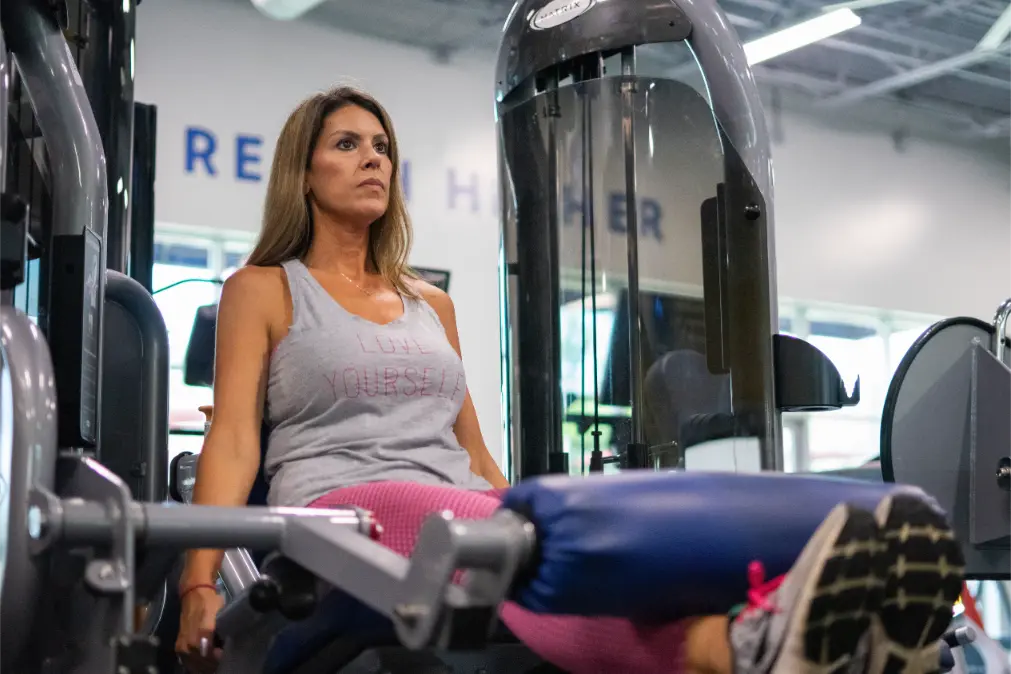For gym-goers in Fayetteville, a well-rounded fitness routine involves more than just regular workouts. Nutrition plays a crucial role in achieving fitness goals, whether you’re looking to build muscle, lose weight, or simply maintain a healthy lifestyle. Here are some essential nutrition tips for Fayetteville gym members to complement their fitness efforts and maximize results.
Balance your macronutrients
A balanced diet is key to fueling your workouts and supporting your body’s recovery. Focus on getting the right mix of macronutrients:
- Proteins: Essential for muscle repair and growth. Include lean sources like chicken, turkey, fish, tofu, and legumes in your meals.
- Carbohydrates: Your body’s primary energy source. Opt for complex carbs like whole grains, fruits, and vegetables for sustained energy.
- Fats: Necessary for hormone production and nutrient absorption. Include healthy fats from sources like avocados, nuts, seeds, and olive oil.
Stay hydrated
Hydration is crucial for optimal performance and recovery. Aim to drink at least 8-10 glasses of water a day, and more if you’re engaging in intense workouts or training in hot conditions. Staying hydrated helps regulate body temperature, transport nutrients, and prevent fatigue.
Time your meals and snacks
When you eat is just as important as what you eat. Try to:
- Pre-workout: Have a snack or small meal 1-2 hours before exercising, consisting of carbs and a moderate amount of protein to provide energy and support muscle performance.
- Post-workout: Consume a meal or snack with a combination of protein and carbs within 45 minutes after your workout to aid in muscle recovery and replenish glycogen stores.
Focus on whole foods
Prioritize whole, nutrient-dense foods over processed options. Whole foods provide a rich array of vitamins, minerals, and antioxidants that support overall health and fitness. Fill your plate with a variety of colorful fruits and vegetables, lean proteins, whole grains, and healthy fats.
Monitor portion sizes
Even healthy foods can contribute to weight gain if consumed in excess. Pay attention to portion sizes and listen to your body’s hunger and fullness cues. Use measuring cups, a food scale, or visual cues (e.g., a fist-sized portion of carbs) to keep portions in check.
Avoid skipping meals
Skipping meals can lead to low energy levels and hinder your performance in the gym. Aim to eat regular meals and snacks throughout the day to keep your energy levels steady and support your fitness goals.
Limit added sugars and processed foods
While it’s okay to indulge occasionally, try to limit your intake of added sugars and processed foods. These items can be high in calories and low in nutrients, which can negatively impact your fitness progress and overall health.
Consider individual needs and goals
Nutrition is not one-size-fits-all. Your dietary needs will depend on factors like your age, gender, activity level, and specific fitness goals. It’s essential to tailor your nutrition plan to meet your unique requirements and objectives. Here’s how your nutrition might differ if you’re looking to gain muscle mass or lose weight:
Gaining Muscle Mass
If your goal is to gain muscle mass, your nutrition plan should focus on:
- Increased caloric intake: To support muscle growth, you’ll need to consume more calories than you burn. This provides your body with the necessary energy and building blocks to build muscle.
- Higher protein intake: Protein is crucial for muscle repair and growth. Aim for a higher intake of protein, around 0.7-1 gram per pound of body weight, to support your muscle-building efforts.
- Balanced carbohydrates: Carbohydrates are important for fueling your workouts and aiding in recovery. Include a mix of complex carbs like whole grains, fruits, and vegetables to provide sustained energy.
- Timing of nutrients: Consuming a combination of protein and carbohydrates before and after your workouts can help maximize muscle protein synthesis and replenish glycogen stores.
Losing Weight
If your goal is to lose weight, your nutrition plan should focus on:
- Caloric deficit: To lose weight, you need to consume fewer calories than you burn. This creates a caloric deficit, forcing your body to use stored fat for energy.
- Protein intake: Maintaining a moderate to high protein intake is important for preserving muscle mass while losing weight.
- Controlled carbohydrate intake: While carbohydrates are still important, you may need to reduce your intake or focus on lower-calorie, high-fiber options like vegetables and whole grains to stay within your calorie limits.
- Mindful eating: Pay attention to portion sizes, eat slowly, and listen to your hunger cues to avoid overeating.
Working with a professional
Given the complexities of nutrition and the individualized nature of fitness goals, working with a registered dietitian or nutritionist can be highly beneficial. They can assess your specific needs, help you set realistic goals, and develop a customized eating plan that aligns with your lifestyle and fitness objectives. They can also provide ongoing support and adjustments to your plan as needed to ensure you stay on track and achieve your desired results.
If you are looking for professional guidance, check out HiTone Fitness. We can help you to get connected with nutrition experts who will provide you with customized meal plans.
Final thoughts
Remember that food is meant to be enjoyed. Find healthy recipes that excite your taste buds, experiment with new ingredients, and savor your meals. A positive relationship with food can enhance your overall well-being and support your fitness journey.







